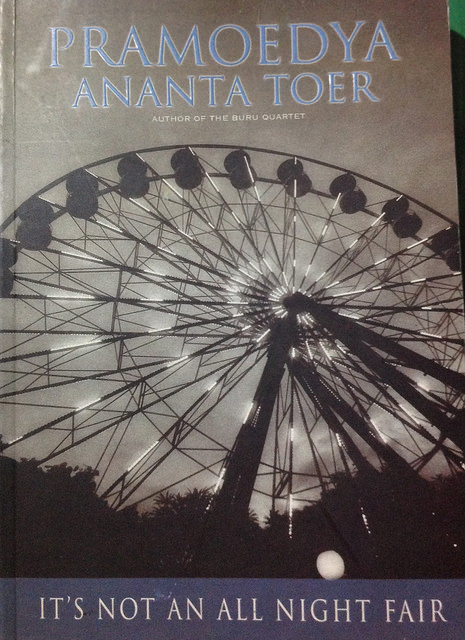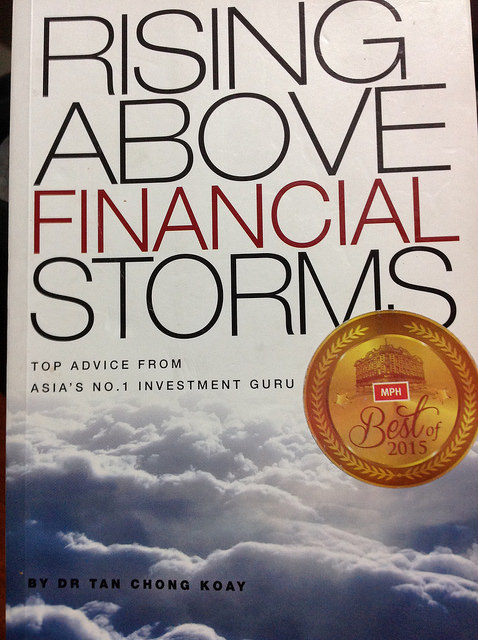If socialites, desiring to promote a better understanding of their lifestyles often calumniated in less perfumed circles, choose to contest the party-list elections together with such groups as Akbayan and Bayan Muna, should they be allowed?
Discounting the fact that there's a precarious line these days separating the socialites from the socialists, the relevant Supreme Court ruling in Bagong Bayani v. COMELEC succinctly states that the socialites cannot. No chance, sorry, the party-list system is only for the underrepresented and marginalized. Also, an hacienda landlord cannot be a representative of a group purportedly representing plantation workers.
The demand of some groups for the COMELEC to disclose the names of the nominees of the parties it approved under the party-list system is therefore only reasonable following the Supreme Court's Bagong Bayani interpretation.
The problem however is that some people, including those in the COMELEC, don't buy the ruling that the party-list system is reserved solely for the marginalized sectors. As Dr. Bernas points out today (although in not so many words exactly), the 1987 Constitution does not reserve the party-list system solely for the marginalized sectors and that the Supreme Court may have erred in the Bagong Bayani case.
Monday, April 30, 2007
Thursday, April 19, 2007
Watch Al Gore's An Inconvenient Truth for free
On Earth Day, April 22, 2007 (Sunday), SM Cinema, together with DENR, Earth Day Network Philippines, and Magnavision, invites you to watch FREE SCREENINGS of "An Inconvenient Truth" at 1PM, 3PM, and 5PM at the following theaters:
1. SM MALL OF ASIA - 5560104-05
2. SM MEGAMALL - 6331901, 6384270
3. SM NORTH EDSA - 9295452
4. SM MANILA - 5239240/05
5. SM SAN LAZARO - 7862487-88
6. SM CENTERPOINT-STA. MESA - 7161416, 7160647
7. SM FAIRVIEW - 4176811, 9350749
8. SM SOUTHMALL - 8066888, 8066782
9. SM PAMPANGA - 8311000 loc 1610-11, (045) 9637681-85
10. SM CLARK - (045) 6255844-45
11. SM BAGUIO - 8311000 loc 1625-26, (074) 6197838/39/41
12. SM CEBU - 8311000 loc 1637, (032) 2313876
13. SM DAVAO - 8311000 loc 1605-06, (082) 2976998
14. SM BACOLOD - (034) 7081010, 8311000 loc 1650
For more information, visit www.smcinema.com /www.climatecrisis.net
1. SM MALL OF ASIA - 5560104-05
2. SM MEGAMALL - 6331901, 6384270
3. SM NORTH EDSA - 9295452
4. SM MANILA - 5239240/05
5. SM SAN LAZARO - 7862487-88
6. SM CENTERPOINT-STA. MESA - 7161416, 7160647
7. SM FAIRVIEW - 4176811, 9350749
8. SM SOUTHMALL - 8066888, 8066782
9. SM PAMPANGA - 8311000 loc 1610-11, (045) 9637681-85
10. SM CLARK - (045) 6255844-45
11. SM BAGUIO - 8311000 loc 1625-26, (074) 6197838/39/41
12. SM CEBU - 8311000 loc 1637, (032) 2313876
13. SM DAVAO - 8311000 loc 1605-06, (082) 2976998
14. SM BACOLOD - (034) 7081010, 8311000 loc 1650
For more information, visit www.smcinema.com /www.climatecrisis.net
Wednesday, April 18, 2007
The politics of public romance
Considering that India is the land which gave as Vatsayana's Kama Sutra, it seems perplexing that Richard Gere's kissing of Shilpa Shetty (and only on the cheeks at that) would create a ruckus of indignation throughout the Indian subcontinent.
Perhaps because of Victorian colonialism or the Mughal influence, Indians turned conservative when it comes to public displays of affection. Just early this year young couples were attacked by the police in Uttar Pradesh for hugging and kissing in a public park. One couple who kissed during their wedding was charged of violating obscenity laws in another case in India.
Kama Sutra aside, it is the current opinion of most people in India,in Asia and in the Philippines that public display of affection (hugging, kissing, even holding hands) is improper. Also for Muslims in the Philippines, a man and a woman unrelated must never touch each other. Even a friendly handshake between a man and a woman some Muslims do not countenance. What's acceptable in the West and in Latin America makes most of us squirm here.
How then should one in love conduct oneself in public? While we have every right to express our affection, we must also balance it with a due regard to the sensibilities of other people. After all, there is no social advantage to public displays of affection. If one must really be amorous, one can always retire to the bedroom or, lacking that, rent a motel room. There the possibilites are infinite and we are limited only by our imagination.
My personal beef about public displays of affection is that while I understand those doing it have probably found their one true love and would probably live happily ever after, but must they rub it in our face? Rather than promoting amatory feeling in the world, public displays of affection only breed contempt, envy and finally disgust on the part of the people who aren't in love and are witnessing the display. PDA is probably okay if we can all be in love at the same time. But then again falling in love all at the same time sounds too much like free love, so we may have another set of problems with that.
One Indian blogger also has this to say about those who force their liberal outlook on this matter:
We must become more liberal in our outlook, I totally agree. But do spare a thought for those who condemn change. Change is never easy. Look at yourself. Did you get over your last girlfriend? Do you like your new job?
Perhaps because of Victorian colonialism or the Mughal influence, Indians turned conservative when it comes to public displays of affection. Just early this year young couples were attacked by the police in Uttar Pradesh for hugging and kissing in a public park. One couple who kissed during their wedding was charged of violating obscenity laws in another case in India.
Kama Sutra aside, it is the current opinion of most people in India,in Asia and in the Philippines that public display of affection (hugging, kissing, even holding hands) is improper. Also for Muslims in the Philippines, a man and a woman unrelated must never touch each other. Even a friendly handshake between a man and a woman some Muslims do not countenance. What's acceptable in the West and in Latin America makes most of us squirm here.
How then should one in love conduct oneself in public? While we have every right to express our affection, we must also balance it with a due regard to the sensibilities of other people. After all, there is no social advantage to public displays of affection. If one must really be amorous, one can always retire to the bedroom or, lacking that, rent a motel room. There the possibilites are infinite and we are limited only by our imagination.
My personal beef about public displays of affection is that while I understand those doing it have probably found their one true love and would probably live happily ever after, but must they rub it in our face? Rather than promoting amatory feeling in the world, public displays of affection only breed contempt, envy and finally disgust on the part of the people who aren't in love and are witnessing the display. PDA is probably okay if we can all be in love at the same time. But then again falling in love all at the same time sounds too much like free love, so we may have another set of problems with that.
One Indian blogger also has this to say about those who force their liberal outlook on this matter:
We must become more liberal in our outlook, I totally agree. But do spare a thought for those who condemn change. Change is never easy. Look at yourself. Did you get over your last girlfriend? Do you like your new job?
Tuesday, April 17, 2007
The unhappy spectre of Mr. Danton Remoto
When Comelec Chairman Abalos called Danton Remoto's Ang Ladlad a party of phantom voters, was it an underhanded reference to the popular phrase multong bakla or did he mean that Remoto, despite the pink barong, looked unpalatably achromatic?
As I understand it, the main reason for disqualifying Ang Ladlad is that the organization lacked a nationwide organization. Lacking a nationwide organization is quite different from having phantom voters. Bert Gonzales's party-list organization, for example, has a nationwide organization but has phantom voters (as evidenced by its lackluster performance in the previous polls.) Ang Ladlad may lack a nationwide organization but one could hardly argue it has phantom voters. As Danton Remoto piquantly stressed, one need only visit the Greenbelt mall to see that Ang Ladlad's constituency is real and, in fact, thriving.
In any case, the only definitive way to settle the question of Ang Ladlad's spectralness should have been to include it in the ballots and see how it fares.
As I understand it, the main reason for disqualifying Ang Ladlad is that the organization lacked a nationwide organization. Lacking a nationwide organization is quite different from having phantom voters. Bert Gonzales's party-list organization, for example, has a nationwide organization but has phantom voters (as evidenced by its lackluster performance in the previous polls.) Ang Ladlad may lack a nationwide organization but one could hardly argue it has phantom voters. As Danton Remoto piquantly stressed, one need only visit the Greenbelt mall to see that Ang Ladlad's constituency is real and, in fact, thriving.
In any case, the only definitive way to settle the question of Ang Ladlad's spectralness should have been to include it in the ballots and see how it fares.
Sunday, April 15, 2007
The wild rush to get wired
Yesterday, the Inquirer had for its editorial the botched plan of the DepEd in Bicol to purchase 600 desktop computers costing 250,000 each. The Inquirer rather sarcastically asked whether the DepEd had first checked whether the students who would be using those computers had classrooms in the first place.
A couple of days ago, Boo Chanco of the Philippine Star also wrote about the recently approved P16.47 billion broadband connectivity project for government offices. He asked whether such a humongous amount of money-a loan from China-is justifiable given our quite limited budget for capital expenditures. It would be more cost-efficient, according to Chanco, to just buy capacity from the private sector one small chunk at a time. Such a huge investment in infrastructure is scary given the rapid nature of technological obsolescence. It might very well be that when this project is finally completed there's a whole new VOIP platform needing newer computer hardware while the people of the Philippines are again left with a loan that needs to be paid.
For high schools and elementary schools, computers and the internet are good supplements to learning but they're, at the end of the day, just supplements. A well-stocked library is infinitely preferable to a computer with internet access. Coupled with a non-technologically savvy public school faculty, there is also the danger that those computers would only be used to surf porn and get dates online. In the wired world of the United States, for instance, this is a big and growing concern, which prompted the online behemoth myspace.com to institute safety precautions intended for minors using the site.
A couple of days ago, Boo Chanco of the Philippine Star also wrote about the recently approved P16.47 billion broadband connectivity project for government offices. He asked whether such a humongous amount of money-a loan from China-is justifiable given our quite limited budget for capital expenditures. It would be more cost-efficient, according to Chanco, to just buy capacity from the private sector one small chunk at a time. Such a huge investment in infrastructure is scary given the rapid nature of technological obsolescence. It might very well be that when this project is finally completed there's a whole new VOIP platform needing newer computer hardware while the people of the Philippines are again left with a loan that needs to be paid.
For high schools and elementary schools, computers and the internet are good supplements to learning but they're, at the end of the day, just supplements. A well-stocked library is infinitely preferable to a computer with internet access. Coupled with a non-technologically savvy public school faculty, there is also the danger that those computers would only be used to surf porn and get dates online. In the wired world of the United States, for instance, this is a big and growing concern, which prompted the online behemoth myspace.com to institute safety precautions intended for minors using the site.
Monday, April 02, 2007
Currently reading: Benjamin Franklin's Autobiography

This is one of those books you wish somebody somewhere did you a great kindness of recommending during a much earlier point in your life.
Like many great books, Benjamin Franklin's autobiography was written at an ebb in the writer's life, in this case when Franklin lost all hope of ever securing an imperial office from the British king. He set out to write his autobiography for the guidance of his own son and for other people to know the conducing means with which he secured his life's share of felicity.
For those seeking self-amelioration, Franklin recommends thirteen virtues: temperance, silence, order, resolution, frugality, industry, sincerity, justice, moderation, cleanliness, tranquility, chastity and humility. He relates how he maintained a book and tallied all the virtues he trespassed for each day.
Reading his autobiography, one is also struck by Franklin's immense civic spirit. He created a fire insurance service, establish a subscription library, organized a fellowship of public spirited men who regularly discuss public issues and write commentaries, and, because the Assembly dominated by pacifist Quakers would not do it, he even raised a private army to defend Philadelphia. How did he raise the money to buy the cannons? He set up a lottery.
Franklin was for a time also a vegetarian, but upon seeing a codfish's stomach full of smaller fishes, he thought, 'if you eat one another, I don't see why we mayn't eat you.' He commented: "So convenient a thing it is to be a reasonable creature, since it enables one to find or make a reason for everything one has a mind to do."
If you have time this holy week, I strongly recommend this book. It will be good for you.
Subscribe to:
Posts (Atom)





